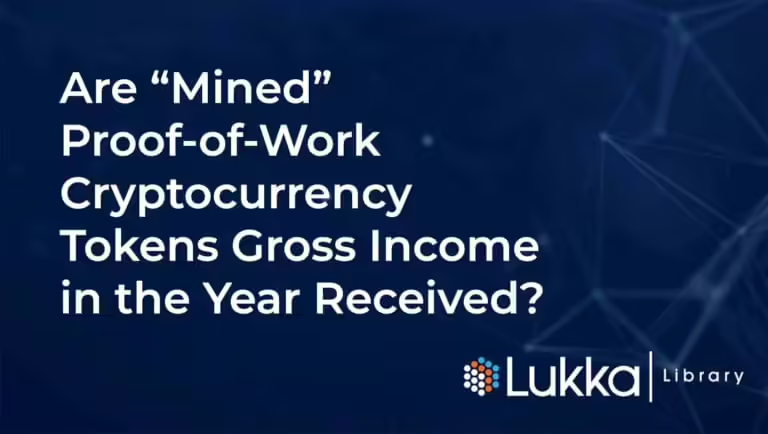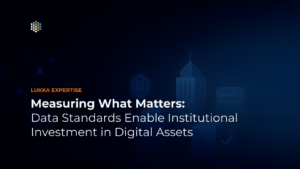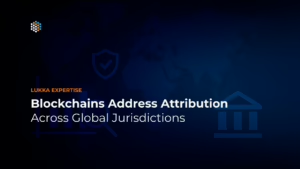Author: Abraham Sutherland, Adjunct Professor, University of Virginia School of Law
Conservative answer: Yes.
Question 8 of IRS Notice 2014-21 states clearly that mined proof-of-work cryptocurrency tokens, also known as “block rewards” and exemplified by Bitcoin, are gross income – measured based on the FMV of the reward tokens on the date received:
Q-8: Does a taxpayer who “mines” virtual currency (for example, uses computer resources to validate Bitcoin transactions and maintain the public Bitcoin transaction ledger) realize gross income upon receipt of the virtual currency resulting from those activities?
A-8: Yes, when a taxpayer successfully “mines” virtual currency, the fair market value of the virtual currency as of the date of receipt is includible in gross income. See Publication 525, Taxable and Nontaxable Income, for more information on taxable income. (IRS Notice 2014-21, 2014-16 IRB 938.)
The IRS’s position follows from an analogy to corporate shares distributed to vendors as payment for services or, more generally, from the example of property transferred as payment for services in a barter transaction. In each case, such shares or other property are typically income measured based on their value at the time received. See Section 61(a)(1); reg. section 1.61-2(d) (“compensation paid other than in cash”); and section 83 (“property transferred in connection with performance of services”).
Alternative answer: No.
Mined cryptocurrency tokens may be better viewed as property that is created by the miner and therefore subject to taxation at the time of the mined tokens’ sale, similar to the tax treatment of other forms of taxpayer-created property.
Analysis:
The IRS guidance on the taxation of mined cryptocurrency reward tokens has been in place for six years and does not appear to have been challenged. That said, the 2014 guidance itself does not carry the force of law, and the guidance does not explain its conclusion by reference to the U.S. tax code or regulations.
First, note that this paper concerns proof-of-work (or POW) cryptocurrencies, in which opportunities to validate transactions (and create new blocks and reward tokens) are allocated according to miners’ “work” on the cryptocurrency network. This work consists primarily of performing calculations to solve a cryptographic puzzle and requires expenditures of a computer’s processing power and electricity.
In contrast, proof-of-stake (or POS) cryptocurrencies allocate validation opportunities according to validators’ “stake,” or share of ownership, in the network. Taxation of proof-of-stake cryptocurrencies may raise different issues, and is addressed in the Lukka Library Paper “Are proof-of-stake block rewards gross income in the year received?” (Jan. 30, 2020).
Arguably, mined cryptocurrency reward tokens are properly viewed as property that is created, or discovered, by those who mine it, as is the case with the traditional mining of minerals. Minerals typically are not income at the time of their discovery or creation and are instead taxed at the time of their sale. See Reg. section 1.61-3(a) (gross income from mined minerals realized at the time of their sale). More generally, property created by the taxpayer is typically taxed when it is sold, not when it is created.
The IRS views cryptocurrency tokens as property. See Notice 2014-21 at Q-1. As in other productive activity, Bitcoin miners expend resources resulting in the creation of new property: namely, the new bitcoins that come into existence with each new block that is added to the Bitcoin blockchain. The argument that miners create new bitcoins is straightforward: miners create new blocks of valid transactions and, with them, new bitcoins. Unless and until a Bitcoin miner solves the cryptographic puzzle, no new bitcoins will be created. With Bitcoin this happens each ten minutes on average, but it can take longer than that, and if all miners turn off their computers it will never happen.
A challenge to the IRS’s stated position on income from mined proof-of-work cryptocurrency may be unlikely, in part because – with Bitcoin – the taxation of reward tokens as immediate gross income can appear to be equitable.
In contrast, the argument for taxation of block rewards as created property is more intuitive in the case of the newer proof-of-stake cryptocurrencies, in part because including proof-of-stake block rewards in gross income can result in demonstrably inequitable taxation, a problem that is solved if reward tokens are taxpayer-created property taxed only at their sale. Although proof of work and proof of stake do differ in some critical respects, it would be difficult to conclude that proof-of-stake validators create reward tokens (enabling the deferral of taxation to the time of sale) while also concluding that proof-of-work miners do not create reward tokens (to maintain such tokens’ inclusion in gross income at their FMV on the date received in accordance with the IRS’s 2014 guidance).
Proof-of-stake taxation is addressed in the Lukka tax paper “Are proof-of-stake block rewards gross income in the year received?” (January 30, 2020).
For an in-depth treatment of block reward taxation, including the argument that deferred taxation of proof-of-work block rewards is more equitable than the IRS’s current position, see:
Abraham Sutherland, Cryptocurrency Economics and the Taxation of Block Rewards, 165 Tax Notes 749 (Part 1; Nov. 4, 2019) and 165 Tax Notes 953 (Part 2; Nov. 11, 2019). The complete Tax Notes report is available at no charge at ssrn.com/abstract=3466796. An introduction to the problem of block reward taxation is available at CoinCenter.org/entry/taxing-cryptocurrency-block rewards.



